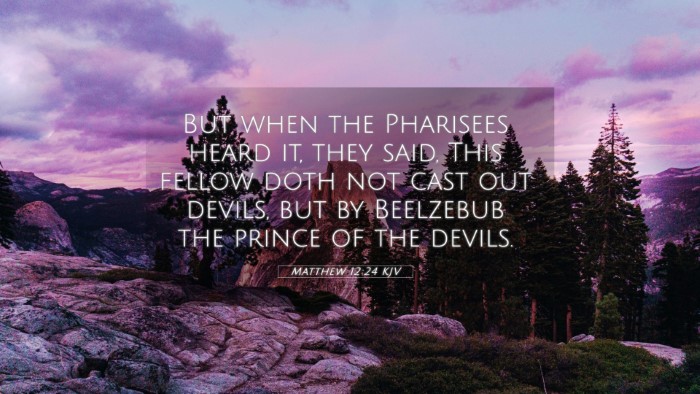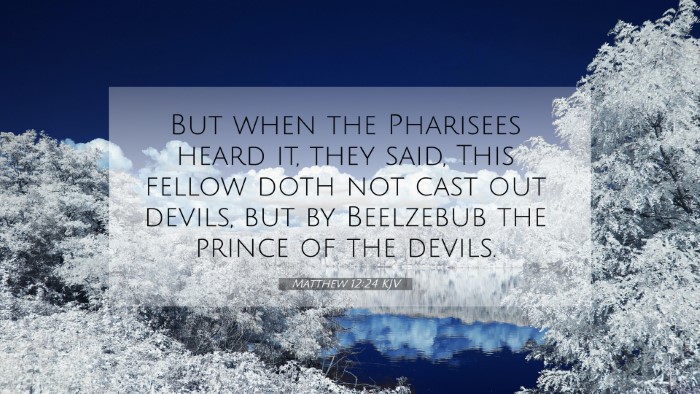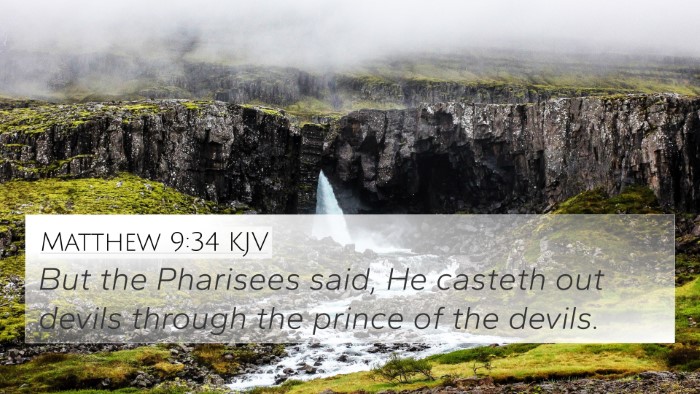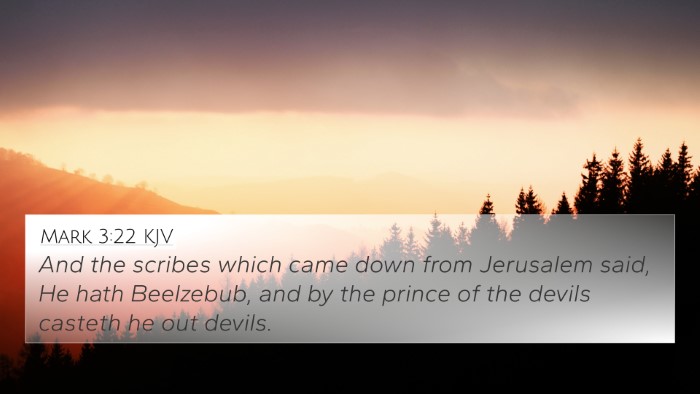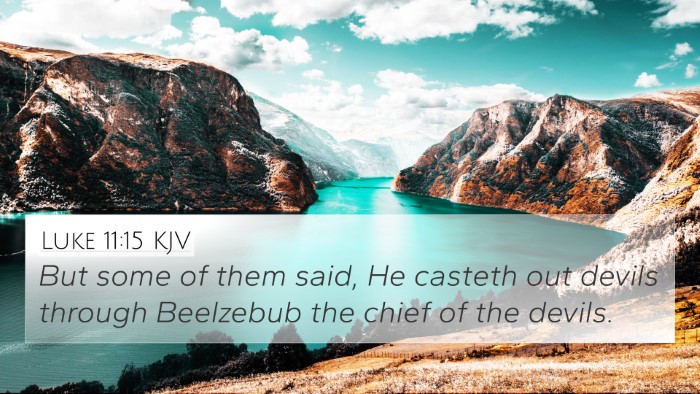Matthew 12:24 - Understanding the Verse
Matthew 12:24 states, "But when the Pharisees heard it, they said, 'This fellow does not cast out demons except by Beelzebub, the ruler of the demons.'" This verse offers profound insights into the conflict between Jesus and the religious leaders of His time.
Contextual Overview
In this passage, Jesus had just performed a miraculous healing, which demonstrated His divine authority. The Pharisees responded by accusing Him of performing miracles through the power of Beelzebub, suggesting a nefarious source for His authority.
Commentary Insights
-
Matthew Henry's Commentary:
Henry reflects on the malice of the Pharisees and their unwillingness to recognize Christ's divine power. Their accusation reveals their hard-heartedness and spiritual blindness, as they attributed the work of the Holy Spirit to the prince of demons.
-
Albert Barnes' Notes:
Barnes explains that attributing the work of Christ to Beelzebub was the ultimate insult, as it denied the very nature of God’s work. He points out that Jesus counters this accusation by illustrating the absurdity of a divided kingdom and emphasizing that a house divided cannot stand.
-
Adam Clarke's Commentary:
Clarke provides further analysis by discussing how the Pharisees' slander reflected their deep-seated jealousy and their desire to maintain control. He notes that their rejection of Christ put them in a perilous position spiritually, warning of the implications of blaspheming the Holy Spirit.
Thematic Connections
This verse is bound by several themes that run through Scripture, such as:
- Spiritual Warfare: The confrontation between Jesus and demonic powers.
- Divine Authority: The power of Jesus contrasted against the accusations of His detractors.
- Religious Opposition: The persistent refusal of the Pharisees to accept Jesus as the Messiah.
Cross-References and Related Verses
Matthew 12:24 connects with several other biblical texts:
- Luke 11:15 - Similar accusal of Jesus by the Pharisees.
- Mark 3:22 - The scribes’ accusations against Jesus.
- Matthew 12:27 - Jesus' rebuttal to the accusation regarding casting out demons.
- John 10:20-21 - Further division in opinions about Jesus’ nature and works.
- James 3:15 - Wisdom that is earthly and demonic contrasted with heavenly wisdom.
- Matthew 4:10 - Jesus' teaching on the worship of the true God vs. serving the devil.
- Matthew 10:25 - The servant is not greater than his master; if they called Jesus Beelzebub, they will also speak ill of His followers.
Summary and Reflection
The accusations posed by the Pharisees in Matthew 12:24 mirror a significant struggle within Scripture’s narrative: the clash between divine light and religious darkness. This verse serves as a reminder of the world's tendency to misinterpret and malign God's work, and the danger of attributing evil to the Holy Spirit. Understanding this verse alongside its cross-references and themes enhances our grasp of the broader biblical message regarding authority, faith, and the spiritual conflict that ensues in the wake of Jesus' ministry.
Conclusion
As we reflect on Matthew 12:24, we should consider the implications of our beliefs and the sources we acknowledge as divine. The exploration of inter-biblical dialogue and connections between these texts not only enriches our understanding but also enhances our faith journey through the lens of scripture.

